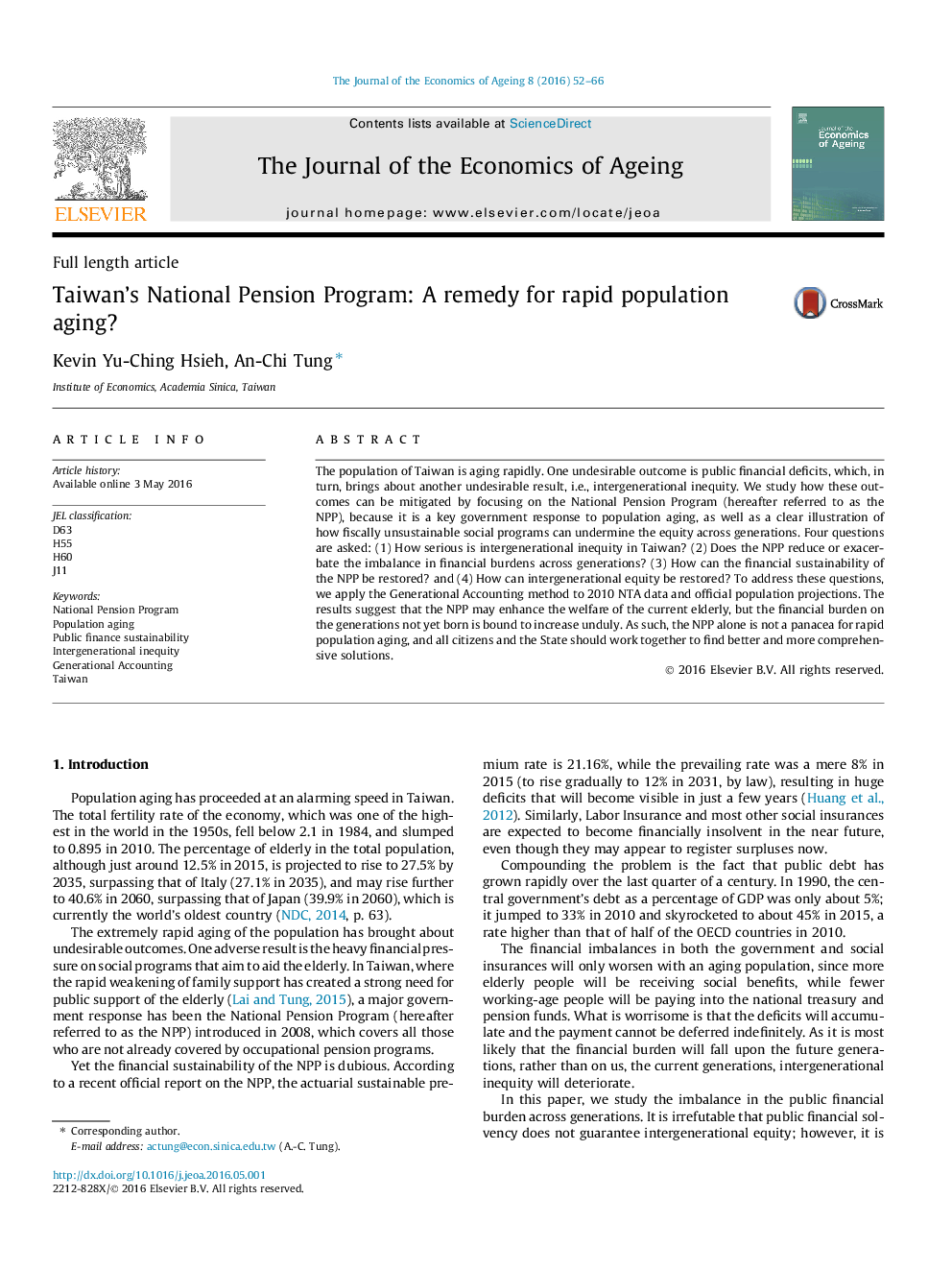| Article ID | Journal | Published Year | Pages | File Type |
|---|---|---|---|---|
| 5100189 | The Journal of the Economics of Ageing | 2016 | 15 Pages |
The population of Taiwan is aging rapidly. One undesirable outcome is public financial deficits, which, in turn, brings about another undesirable result, i.e., intergenerational inequity. We study how these outcomes can be mitigated by focusing on the National Pension Program (hereafter referred to as the NPP), because it is a key government response to population aging, as well as a clear illustration of how fiscally unsustainable social programs can undermine the equity across generations. Four questions are asked: (1) How serious is intergenerational inequity in Taiwan? (2) Does the NPP reduce or exacerbate the imbalance in financial burdens across generations? (3) How can the financial sustainability of the NPP be restored? and (4) How can intergenerational equity be restored? To address these questions, we apply the Generational Accounting method to 2010 NTA data and official population projections. The results suggest that the NPP may enhance the welfare of the current elderly, but the financial burden on the generations not yet born is bound to increase unduly. As such, the NPP alone is not a panacea for rapid population aging, and all citizens and the State should work together to find better and more comprehensive solutions.
